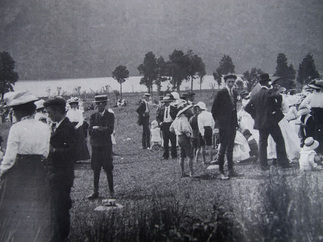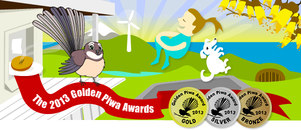
LAKE POERUA
Lake Poerua is home to an abundant species of Brown Trout and Short finned eels. Birdlife teems around the lake edge with black swans, ducks, geese and alongside the more common grey cousin, the elusive rare Kōtuku (White Heron).
Enjoy leisurely kayak adventures with the complimentary use of kayaks and a large old wind surfer board (for paddle boarding purposes).
Follow the lake outlet through the hidden lagoon to a roaring waterfall unofficially named 'Tear of the Taniwha' by local children of the valley. During the summer months, the lake is quite warm and great for swimming off the shingle beaches.
Lake Poerua was an important resting place for early Māori coming from the East Coast to the West Coast in search of Pounamu (Greenstone). They would rest and gather food at the lake which had always provided a plentiful supply of Kōkopu (native fish), Tuna (Freshwater Eel), Kākahi (Freshwater mussel) and Kererū (Wood pigeon) etc.
In later times, the lake played host to many a picnic for the local european settlers as shown in the photograph above. This was estimated to be taken around the turn of the last century in the early 1900's.
Lake Poerua is home to an abundant species of Brown Trout and Short finned eels. Birdlife teems around the lake edge with black swans, ducks, geese and alongside the more common grey cousin, the elusive rare Kōtuku (White Heron).
Enjoy leisurely kayak adventures with the complimentary use of kayaks and a large old wind surfer board (for paddle boarding purposes).
Follow the lake outlet through the hidden lagoon to a roaring waterfall unofficially named 'Tear of the Taniwha' by local children of the valley. During the summer months, the lake is quite warm and great for swimming off the shingle beaches.
Lake Poerua was an important resting place for early Māori coming from the East Coast to the West Coast in search of Pounamu (Greenstone). They would rest and gather food at the lake which had always provided a plentiful supply of Kōkopu (native fish), Tuna (Freshwater Eel), Kākahi (Freshwater mussel) and Kererū (Wood pigeon) etc.
In later times, the lake played host to many a picnic for the local european settlers as shown in the photograph above. This was estimated to be taken around the turn of the last century in the early 1900's.
